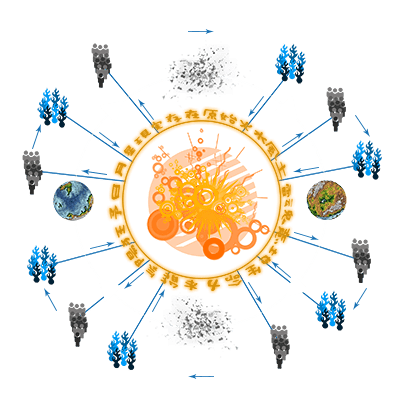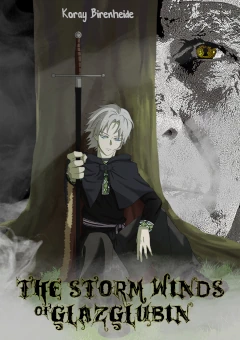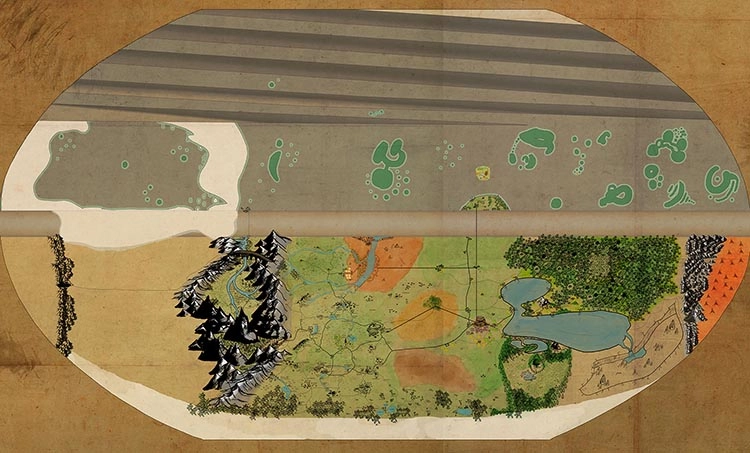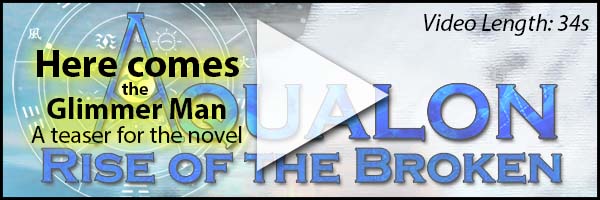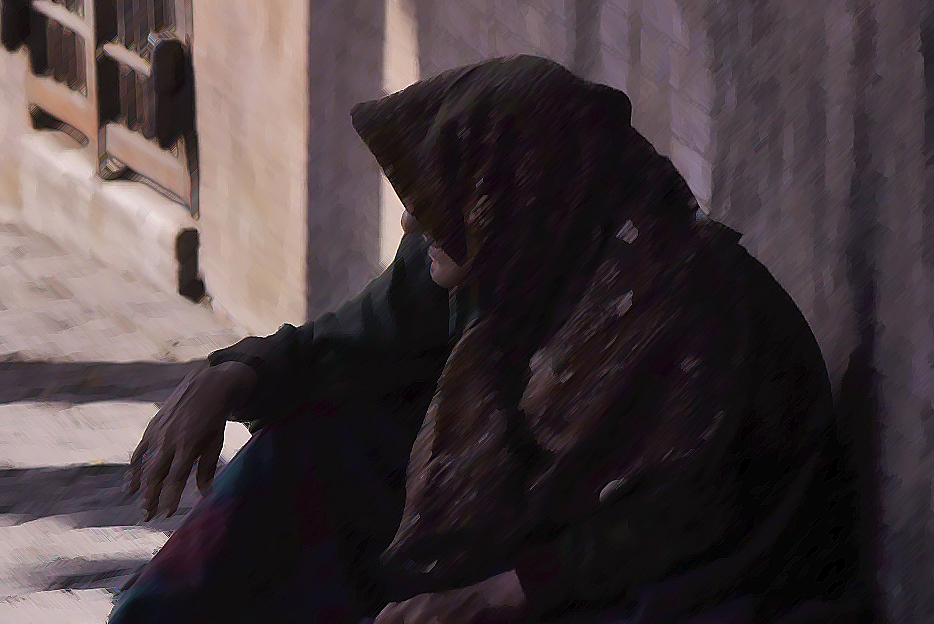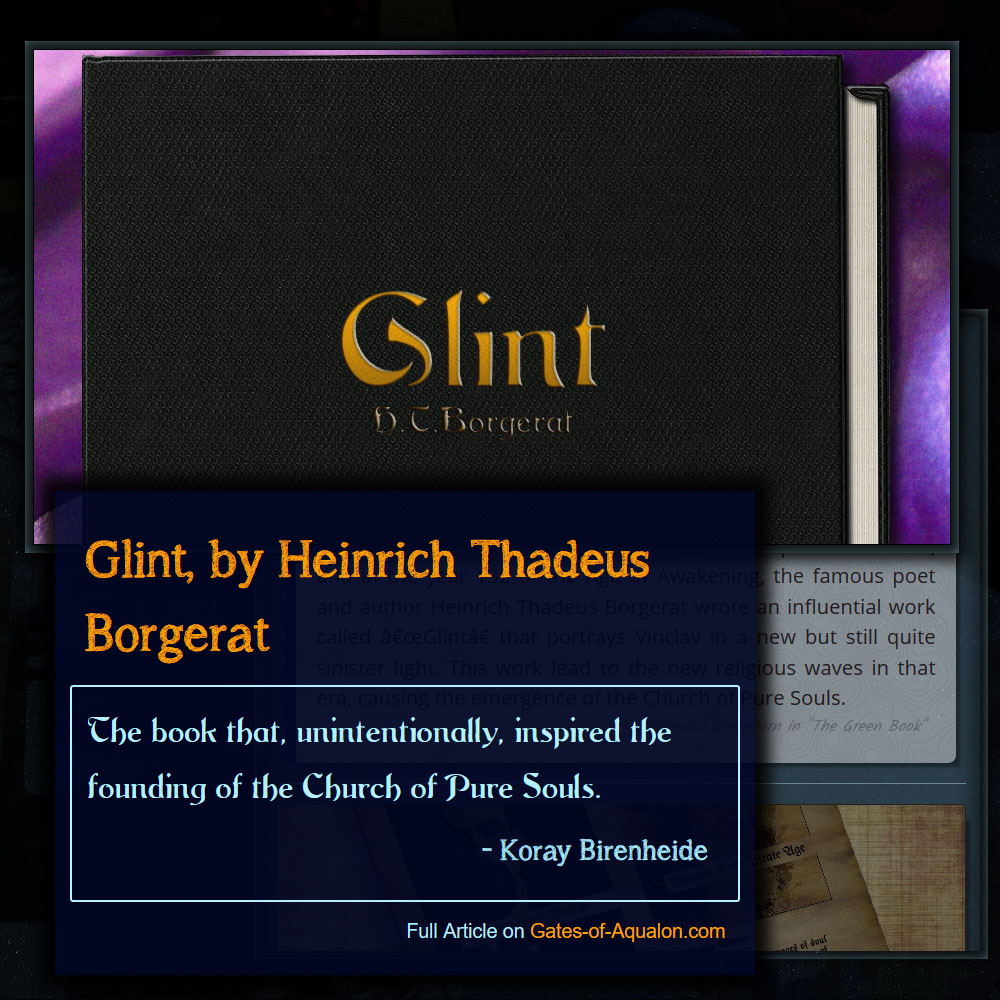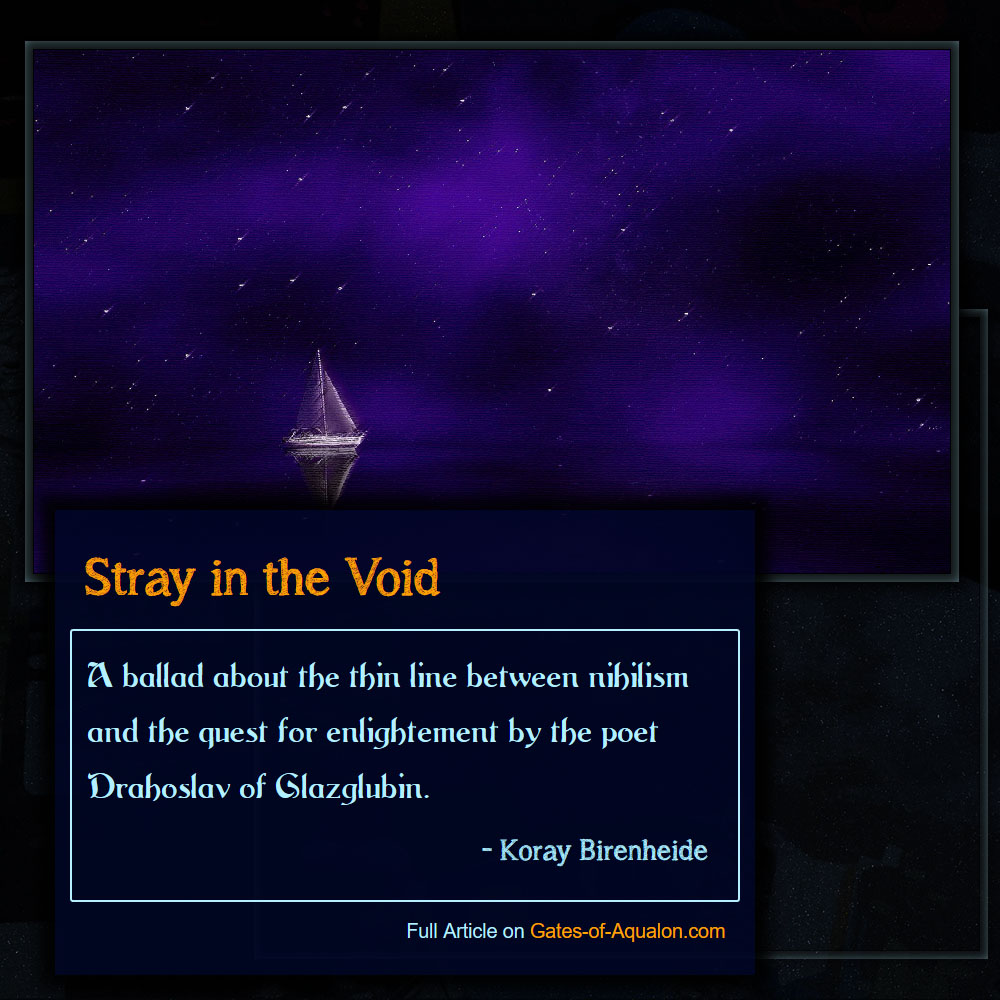With hair of paper white and eyes
as bright as cobalt wrought with light
the Angels fly with magic's might
and woe to those who ask the price
One gate without and five gates within, these are the basic nodes that connect the mind to the soul to the Great Clockwork . And when magic is manifested, it flows from the Great Clockwork back along those pathways into the real world. But when more magic flows than the soul can safely take, the gates begin to deteriorate and break.
Sickness
Stages and Symptoms
- First Stage: Strands of hair begin to go perfectly white.
- Second Stage: The eyes turn a bright, cobalt blue.
- Final Stage: The hair is completely white, eyes are bright, cobalt blue, and slightly glow. Expending the smallest amount of soul power beyond one's capacity will begin to shorten the lifespan of the afflicted by years at a time. It is believed because of this that the soul is connected to the longevity of some people.
- Nullsickness: Afflicted in the final stage of spellblight run the risk of damaging their soul in a process called 'gate cracking'. This results in an inability to use magic ever again.
Early History

Spellblight in the Middle Lands
Mages in the Middle Lands have many opportunities to make a good living for themselves if they are properly trained. Farmers often pay good coin or offer shares of land to traveling mages that can bend hard land into a more pliable form suited for tilling or water fields for higher yields or during droughts. Academy mages are regularly hired as consultants and tutors by wealthy families and can even earn titles for themselves if they work for the right people. The best money, however, is usually in the five capital cities of the Middle Lands, Aquaris, Lumina Aka, Fulgrath, Arda, and Aerialis. The magic in the Middle Lands is extremely sophisticated and affords many benefits and a living standard to its people that would usually require a much higher level of technology. Maintaining this living standard and the magic behind it is a full-time job, or, better put: a vast number of full-time jobs.
By use of spell ink, magic engines can be fueled by the soul power of common people who possess no magical training, and there is good money in creating them. Mages, however, have a decisive advantage here because their minds have been disciplined and their soul power augmented for using magic, meaning they can earn well and avoid the perils of working magic engines in the city.

Nowhere has the magical industrial revolution been more prolific than in the great city of Fulgrath, the city of Lightning, capital of the Republic of Fulgrath. The mages and scientists of the Grand Academy, ever eager, have invented bigger, better, and cleverer magic engines than all the rest of the Middle Lands, and the extreme everyday application of spell ink has made spellblight a serious problem in the mighty metropolis.
Public Image
There is a strong belief among Middlanders that those afflicted by final stage spellblight have damaged souls or none at all, and they are often derogatorily called 'blighters'. They are common among ragamuffins and the lowest tier of society since spell work generally pays well, and they often feel they have nothing to offer but their souls. Blighters who somehow manage to come into some money usually attempt to hide their affliction by dyeing their hair, often going so far as bandaging their eyes, claiming to be blind, as life as an effective blind man or woman is still less of a stigma than being a blighter.In Higher Circles
Academics of the Middle Lands generally do not approve of the whole 'blighter' thing and are well educated enough to know that the afflicted did not actually lose their souls but have only become vulnerable to overuse of magic. There have been attempts made by the mages of the Middle Lands to cure nullsickness, but none have ever been met with success.Spellblight in the Yamato Kingdom
The Yamato equivalent to blighters is far rarer and called by a different name: "Yasha". The yasha are feared by the Yamato people, and many frightning fairy tales have been spun around these in principle harmless folk. Shunned by society they often flee into the Yamato Mountain Range to live the rest of their lives as hermits, always afraid of being killed by bold Yamato people that think they are slaying a dangerous creature. While magic is not as sophisticated in Yamato society as in Middlish society, there are still orders of spell casters that are active in the city of Yamaseki. Contrary to Middlish opinion, the magic of Yamato mages is not esoteric but totemic in nature, though esoteric elements have been built around this principle. Totemic magic is a type of psychological trick that stimulates the release of the soul by believing a mundane object has some form of power. This power then actually comes from the person believing this. Yamato mages usually do this by writing dairihô maki (sometimes called "substitute law scrolls", scrolls with poetic calligraphy in it that is sometimes arranged in patterns, depending on clan and tradition). When practicing this magic, they sometimes overextend themselves, suffering from spellblight, as they do not possess the level of discipline and education that comes with the systematic and refined teachings of Middlish mage academies.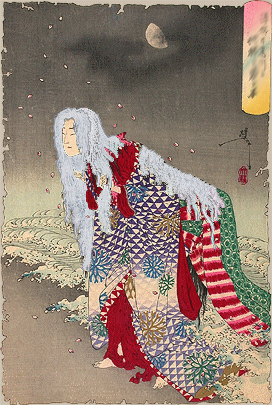
An Ukiyo-e (woodblock print) of the famous yasha Yoshitsune no Yôko from the fairy tale "Mitsuyasha Monogatari"
Additionally, the Black Market of the Uramachi of Yamaseki deals in dangerous magical artifacts and smuggled spell ink from the Middle Lands, sometimes employing outlawed spell engines for monetary gain or darker purposes. These criminal dealings often consume the lives of the lowest ilk involved, regularly producing yasha that then have to flee Yamaseki in the dead of night or live out a miserable existence in the so called Yashamura, a small, cramped district in the Uramachi unknown to the officials of Yamaseki as well as most of its citizenry. Here only yasha live, and their existence is meager and pitiful.
Spellblight on the Corsic Ocean
Blighters on the Corsic Ocean have had a rough couple of millenia. With the emergence of the Church of Pure Souls, the use of magic has often been regulated and persecuted for many decades or even centuries at a time, zealous church fleets scouring the many islands of the Ocean Belt for those who have suffered from spellblight to make an example of them. The reason: Blight is a visible blemish on the soul, the one thing the Church cannot tolerate.
At the same time, animancy has always been rampant across the Ocean Belt, and those who bend the souls of others with magic, oftentimes crack them in the process, forcing them to suffer the blight and thus face lives as social pariahs, always in danger of being confronted by the church, even if they miraculously escape their horrid captors. And of course, few people left as huge an imprint on the annals of history as the feared Vinclav, sometimes called "the White Death", who used his terrible animancy to blight thousands upon thousands, ultimately becoming the symbol of all evil for the Church of Pure Souls to rally behind. His legacy lives on in the worst of the worst, the Corsic Ocean has to offer, and those animancers who strife to follow his footsteps leave a wake of blighters and dead bodies in their paths.

